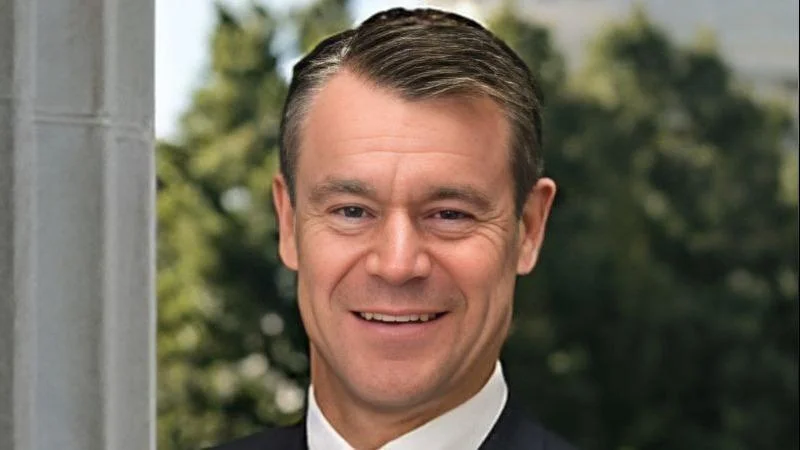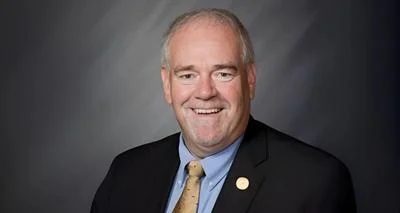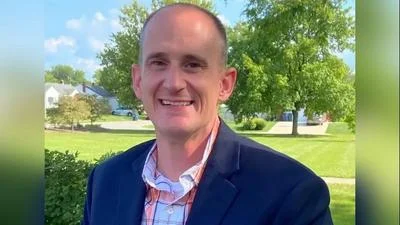Senator Todd Young, US Senator for Indiana | Official U.S. Senate headshot
Senator Todd Young, US Senator for Indiana | Official U.S. Senate headshot
U.S. Senators Todd Young (R-Ind.), Ted Cruz (R-Texas), and a bipartisan group of senators introduced the Tools to Address Known Exploitation by Immobilizing Technological Deepfakes on Websites and Networks (TAKE IT DOWN) Act today. The bill aims to protect victims of non-consensual intimate image abuse, commonly referred to as "revenge pornography." The legislation seeks to criminalize the publication of non-consensual intimate imagery (NCII), including AI-generated NCII or "deepfake pornography," and mandates that social media platforms implement procedures for removing such content upon notification from a victim.
The bipartisan effort is co-sponsored by Senators Amy Klobuchar (D-Minn.), Cynthia Lummis (R-Wyo.), Richard Blumenthal (D-Conn.), Shelley Moore Capito (R-W.Va.), Jacky Rosen (D-Nev.), Ted Budd (R-N.C.), Laphonza Butler (D-Calif.), Joe Manchin (I-W.Va.), John Hickenlooper (D-Colo.), Bill Cassidy (R-La.), and Martin Heinrich (D-N.M.).
Senator Young highlighted the increasing use of generative AI to create exploitative images based on clothed images of individuals. He stated, "This bipartisan bill builds on existing federal law to protect Americans, particularly young women, from harmful deepfakes and establishes a requirement for websites to take down this type of explicit and disturbing material."
Senator Cruz emphasized the need for a uniform federal statute, noting, "While some states provide legal remedies for victims of non-consensual intimate imagery, states would be further supported by a uniform federal statute that aids in removing and prosecuting the publication of non-consensual intimate images nationwide."
Senator Capito underscored the accountability aspect, saying, "Our bill will make sure that even computer-generated deep fakes will not be allowed to stay online."
Senator Rosen pointed out the necessity of establishing guardrails as artificial intelligence becomes more prevalent in daily life. She remarked, "I’m helping introduce this bipartisan legislation to make it a crime to publicize these types of harmful images and videos."
The TAKE IT DOWN Act also received support from Senator Lummis who noted the importance of ensuring new technologies are not misused by bad actors. Senator Manchin expressed his commitment to promoting online safety while acknowledging Congress's responsibility in combating evolving threats associated with artificial intelligence.
Senator Budd called for a national response due to the growth in online sexual exploitation and blackmailing. He stated, "The Take it Down Act builds on existing federal law...and establishes a requirement for websites to respond to victims and take down explicit material."
Despite nearly every state having laws protecting people from NCII—including Indiana and 19 other states with laws explicitly covering deepfake NCII—these laws vary significantly in classification and penalty. Victims often face challenges in having their images removed from websites.
In 2022, Congress passed legislation allowing victims to sue individuals responsible for publishing NCII; however, civil action can be impractical due to its time-consuming nature and expense.
The TAKE IT DOWN Act aims to address these issues by protecting victims while respecting free speech. It has garnered support from over three dozen organizations across the political spectrum.






 Alerts Sign-up
Alerts Sign-up